Contract management software is a digital solution that centralizes, automates and streamlines the contracting process from document creation to renewal and beyond. Whether you need to overhaul paper-based workflows or introduce efficiency as your business scales, quality contract management software has the tools you need.
Contract management platforms provide a centralized repository with security, version control and standardized approval routing built in, in contrast to siloed documents gathering digital dust in scattered drives. Template libraries allow terms to be customized for repeat clients and agreements, while maintaining consistency and transparency across the board.
Automated notifications of impending deadlines and required reviews assure a business owner that no important date will be overlooked. For entrepreneurs and established enterprises alike, contract management software can transform what is often a disorganized, time-intensive process into a seamlessly managed one. Strategic implementation of the right feature-rich platform empowers success by keeping contract terms, stakeholders, and obligations clear and accessible to all.
Geekflare team has researched and listed the best contract management software based on collaboration features, automation, or specific use case.
- PandaDoc – Best for Seamless Document Workflow
- Zoho Contracts – Best for Small to Medium Businesses
- Deel – Best to Manage International Contractors
- ContractWorks – Best for Simplified Contract Management
- Concord – Best for Collaboration and Automation
- Remote – Best for Hiring and Paying Contractors
- DocuSign CLM – Best for Integrating with Electronic Signatures
- Evisort – Best for AI-Powered Contract Analytics
- Ironclad – Best for Digital Contract Transformation
- Icertis – Best for Enterprise
- Conga Contracts – Best for End-to-End Contract Lifecycle Management
- SAP Ariba – Best for Procurement and Supply Chain
- Coupa CLM – Best for Spend Management Integration
- SirionLabs – Best for Large Business
- Show less
You can trust Geekflare
Imagine the satisfaction of finding just what you needed. We understand that feeling, too, so we go to great lengths to evaluate freemium, subscribe to the premium plan if required, have a cup of coffee, and test the products to provide unbiased reviews! While we may earn affiliate commissions, our primary focus remains steadfast: delivering unbiased editorial insights, and in-depth reviews. See how we test.

PandaDoc
Best for Seamless Document Workflow
- USPCustomizable Templates
- IntegrationsSalesforce, HubSpot, PayPal
- Customer Support24*7 Web, Chat Support
About PandaDoc
PandaDoc is a privately held contract management company that helps teams streamline document workflows through an easy-to-use platform launched in 2011. It. Their intuitive drag-and-drop editor provides the building blocks teams need to efficiently create, share, and sign agreements and paperwork. And with a collaborative interface optimized for deal cycles, sales and client service are unified on the platform.
Pre-built templates keep proposal, quote, and contract creation consistent, while drag-and-drop editing makes tailoring a breeze. Versatile automation then takes the busywork out of getting documents approved, signed, and stored — freeing users to focus on moving deals forward. Advanced integrations with CRMs and other tools further cement PandaDoc as a powerfully simple solution.
PandaDoc Features
Template library: Start efficiently with hundreds of ready-made designs, a master template and automatically generated smart content
Inline editing: Customize documents directly without leaving the interface
Simple collaboration: Multiple users can work simultaneously on the same document; commenting, redlining and finalizing an agreement in real-time
Electronic signatures: Secure e-signing that’s legally binding, ESIGN and UETA compliant
Automated workflows: Turn repetitive tasks over to smart workflows
Usage tracking: See who’s viewed, signed, or downloaded agreements
Analytics & reporting: Gain insights to improve processes and results
AI-powered search: Easily retrieve relevant contracts based on automatically extracted company names
PandaDoc Pros/Cons
Collaborative interface is easy for any user to learn
Templates remember custom properties for consistency
Centralized access and version control improves oversight
Robust workflow automation saves time and reduces errors
Effortlessly integrates into existing business software
Custom design options are more limited than dedicated design software
Support for complex contracts with many conditional clauses are limited
Storage and advanced analytics require upgrading to pricier plans

Zoho Contracts
Best for Small to Medium Businesses
- USPIntegration with Zoho Ecosystem
- IntegrationsZoho suite, MS Office
- Customer SupportLive Chat, Email
About Zoho Contracts
Zoho Contracts is a cloud-based contract lifecycle management software designed by Zoho Corporation to streamline the entire contract process for businesses of all sizes. Founded in 1996, Zoho offers over 40 products for customer relationship management (CRM), project management, accounting and more.
Zoho Contracts offers the perfect balance of powerful features and affordability that SMBs need. Its easy-to-use interface allows non-legal teams to efficiently manage contracts. Scalable pricing grows with your business needs. Strong Zoho integration provides simple workflows for customers already using the Zoho suite.
Zoho Contracts Features
Real-time collaboration: Collaboration tools for real-time contract editing and approval with version control and retrieval of past contract drafts
Approval workflows: Automated approval workflows with notifications and reminders, as well as legally binding electronic signature functionality
Clause library and templates: Reusable clause library and contract templates
Built-in analytics: Reporting and analytics on contract performance
Change management: Adapt quickly to the business environment and contract changes using clause-based reports, automated renewals and simplified termination processes
Track and manage obligations: Avoid oversights, improve compliance, reduce business risks, and enhance performance by effectively managing all your contractual obligations in one place
Simple integrations: Integrations with other Zoho products and some third-party tools
iOS mobile app: iPhone and iPad users can easily manage contracts on the go
Zoho Contracts Pros/Cons
Affordable pricing plans tailored for SMB budgets
User-friendly design reduces learning curve
Powerful features like workflows and analytics
Strong integration within the Zoho ecosystem
Scalable to grow with business needs over time
Less configuration options than some competitors
Basic reporting compared to enterprise solutions
Not ideal for companies needing a standalone contract automation software
Advanced features require more training to use
Smaller ecosystem of third-party integrations

Deel
Best to Manage International Contractors
- USPAvailability in 150+ Countries
- IntegrationsHR Tools, Payment Platforms
- Customer Support24*7 Support, Dedicated Manager
About Deel
Deel is a global contractor management platform that simplifies hiring, paying and ensuring compliance for international freelancers and contractors. Founded in 2018 and based in San Francisco, Deel acts as an Employer of Record for businesses, handling payroll, taxes, and other HR responsibilities for contractors in over 150 countries.
Deel streamlines the entire process of international contractor management from a single dashboard. It removes the heavy administrative burden of navigating complex global compliance and payroll regulations through automated systems and legal expertise in over 100 markets. Deel’s intuitive interface provides features like onboarding, payment distribution and reporting tailored for managing remote global workforces.
Deel Features
Contractor onboarding: Simple signup and identity verification for international contractors
Global payroll: Automated payroll and invoice management, tax withholding and flexible payment options in local currencies
Compliance management: Ensure adherence to labor laws in over 100 countries
Contract management: Create and e-sign contracts securely from any device
Team management: Centralized visibility and management of global contractors
Collaboration tools: Strong collaboration tools for real-time contract editing and approval
Analytics and reporting: Detailed reporting on contractor payments and team metrics
Deel Pros/Cons
Simplifies global hiring without the burden of country-specific compliance
Reduces costs associated with setting up and managing international payroll
Streamlines contractor onboarding, payments and management into one portal
lessens legal risks of non-compliance with local labor regulations
Limited customization options for complex contractor workflows
Higher pricing compared to traditional domestic payroll providers
Not designed for managing large employee workforces
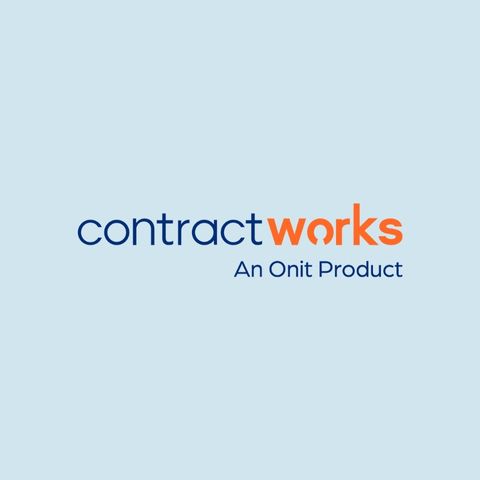
ContractWorks
Best for Simplified Contract Management
- USPUnlimited users under 1 plan
- IntegrationsSalesforce, Pipedrive
- Customer SupportPhone, Email
About ContractWorks
Built to streamline contract management, ContractWorks provides cloud-based tools to simplify workflows from drafting to execution. Developed and continually updated by SecureDocs, an Onit company, ContractWorks focuses on delivering user-friendly software solutions for businesses of all sizes.
ContractWorks excels when ease of use and accessibly priced automation are priorities. The pre-configured workflows guide users through common contract stages, while integrated reminders help avoid missed deadlines. Template libraries and guided prompts further simplify drafting. Overall, ContractWorks removes complexities to provide a straightforward solution for companies with occasional or routine agreement needs.
ContractWorks Features
E-signatures: Securely send and collect electronic signatures
Search: Find key terms, clauses or specific contracts quickly with optical character recognition
Version control and audit trails: Track changes to contracts over time, and verify the integrity of a document and validity of the signature
Secure document storage: Central repository in the cloud with role-based access controls
Workflow automation: Pre-built automations for repetitive tasks like contract approvals, reminders, and notifications
Live collaboration: Comment on, redline and annotate dynamically generated drafts in real-time, or use AI to simplify legalese and create new clauses as needed
Customizable dashboards and reporting: Create personalized dashboards to track important deadlines, upcoming expirations, and other key metrics that are important to you with custom tagging
ContractWorks Pros/Cons
User-friendly interface requires minimal training
Templates simplify and speed up contract creation
Workflows automate routine tasks to save time
Intuitive searching and organization of agreement portfolios
AI-powered drafting tools
Customization options for workflows are not very flexible
Few pre-built integrations with other tools
Base plans limit electronic signature licenses
Cost of paid plans is prohibitive for small companies and startups
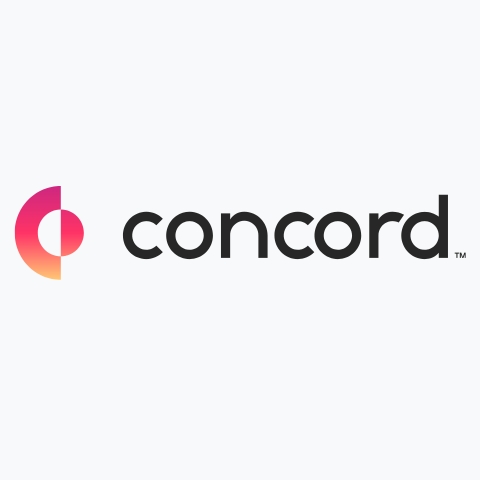
Concord
Best for Collaboration and Automation
- USPUnlimited E-Signatures
- IntegrationsHubSpot, Salesforce, Zapier
- Customer SupportEmail; Priority Support for Business & Enterprise Plans
About Concord
Concord is a leading contract lifecycle management platform designed to streamline the entire contracting process. Founded in 2014 and headquartered in San Francisco, Concord prioritizes collaboration and automation through intuitive tools and workflows.
Concord truly excels at bringing teams together on contracts. Its modern interface allows real-time document sharing and easy incorporation of feedback. Configurable approval workflows ensure deadlines are met. Best of all, AI features like automated clause extraction, plus an AI assistant for drafting and reviewing, give you a strategic edge in negotiations.
Concord Features
Real-time collaboration: Online drafting, editing and approval tools promote effortless cooperation so agreements are created and finalized in minutes
Automated workflows: Approvals, reminders and other processes can be handled automatically
Centralized repository: All contracts are securely stored for easy reference and version control
Analytics and reporting: Track KPIs and gain visibility into contract performance
Same-day onboarding: Get your teams set up and working the way you want from day one
Unlimited e-signatures and signers: Collect unlimited e‑signatures on as many documents as needed on all of Concord’s pricing plans.
Concord Pros/Cons
Enhanced productivity through streamlined communication
Reduced errors with AI-powered drafting and reviewing
Granular security and control over complex access permissions
Scales to support high contract volumes for enterprises
User-friendly interface requires little training
Feature set are not suited to highly complex contract workflows and very high contract volume
Steep Learning curve for more advanced customizations and automations for non-technical users
Advanced analytics capabilities unavailable

Remote
Best for Hiring and Paying Contractors
- USPCompliance Expertise
- IntegrationsZapier, Workday, Bamboo HR
- Customer Support24*5 via Email, Live Chat
About Remote
Remote is a cloud-based HR platform designed specifically for managing global contractor workforces through automated workflows, global payroll services, and built-in compliance tools. Founded in 2019, Remote aims to simplify hiring and paying remote talent worldwide.
Remote streamlines the entire contractor lifecycle through intuitive interfaces and automated processes. Its employer of record services eliminate the burden of international payroll compliance that other options lack. A focus on global capabilities and managing varied contractor types sets Remote apart.
Remote Features
Onboarding: Remote simplifies contractor onboarding for employees, contractors, and freelancers with digital agreements and centralized document collection
Compliance: The platform ensures adherence to local employment laws for team members in over 180 countries
Payroll: Remote facilitates automated global payruns, taxes, benefit management, and flexible payments in multiple currencies through its EOR services
Employee self-service: Employees can access payslips, request time off, manage benefits, submit expenses and more through the mobile app
Pros/Cons
Simplified compliance for international hiring
Automated payments to contractors worldwide
Dedicated focus on diverse independent contractor relationships
Configuration required for advanced workflow customization
Limited free trial hinders assessment of long-term value
Require upgrading or purchasing additional features to achieve desired functionality
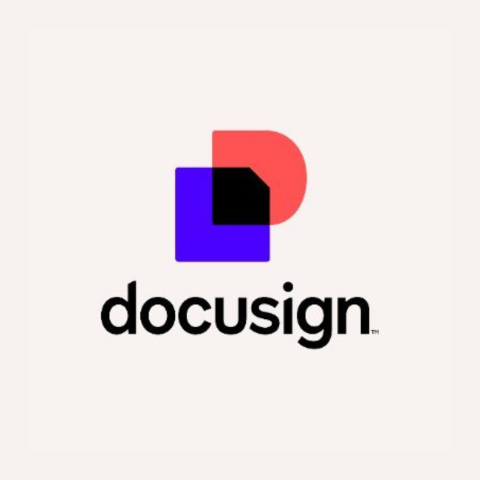
DocuSign CLM
Best for Integrating with Electronic Signatures
- USPExcellent Track Record
- IntegrationSalesforce, SAP Ariba, Coupa
- Customer SupportLive on Phone, Email, Chat
About DocuSign CLM
DocuSign CLM is a leading cloud-based contract lifecycle management software offered by DocuSign, an industry pioneer in e-signature technology. It provides a comprehensive suite of tools to manage the entire contract process from start to finish.
DocuSign CLM offers the smoothest integration with DocuSign eSignature, a top e-signature solution with worldwide compliance certifications. Users can easily request, collect and approve contracts and signatures from within the CLM interface in a predefined signing order. A comprehensive suite of tools for for managing agreements, including document editing, collaboration features, automated workflows, and comprehensive reporting functionalities just add to the already attractive package.
DocuSign Features
Real-time collaboration: Collaboration tools and AI assisted negotiation capabilities allow contract reviewers to edit documents simultaneously and comment in real-time
Automated workflows: Configure automated routing, reminders and approvals through visual workflow designer that supports conditional rules
Templates and clause library: Create standardized boilerplate contracts and clauses, automatically pull in relevant data from integrated systems, and use a drag-and-drop editor to expedite drafting
Advanced reporting: Analytics provide insights into contract performance, risks, and process bottlenecks
DocuSign integration: Native integration with the internationally recognized and legally binding digital signing platform
DocuSign Pros/Cons
Seamless eSignature integration for a super simple signing workflows
Built on a secure cloud platform and easily scales to accommodate growing business needs
Improved visibility into agreement lifecycles with in-depth reporting
Customization options for workflows and features are more limited compared to competitors
Pricing details unavailable without contacting DocuSign directly
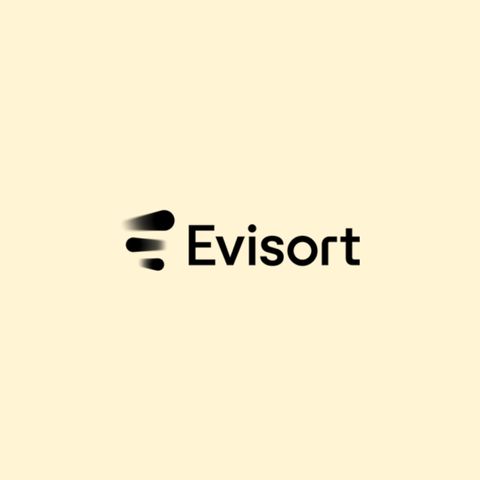
Evisort
Best for AI-Powered Contract Analytics
- USPAI Contract Analysis
- IntegrationSalesforce, ServiceNow, Zapier
- Customer Support24*7 Live Chat, Phone
About Evisort
Evisort is an AI-powered contract lifecycle management platform that focuses on leveraging machine learning to automate contract analysis, data extraction and manage workflows. Founded in 2016, Evisort is based in San Francisco and is the first company to develop a large language model specifically for analyzing legal contracts.
Evisort’s proprietary AI technology, including its large language model (LLM), is specifically trained on legal contracts, which allows it to understand complex legal language with high accuracy. This enables Evisort to best extract important data, identify risks and obligations, and provide actionable insights that generic AI may miss. Evisort also allows training custom models on industry-specific terms and offers exceptional capabilities for automation through its Workflow Hub.
Evisort Features
AI-Powered analysis: Automatically extracts key data, terms, and obligations from contracts
Simplified drafting and negotiation: Dynamic contract templates and collaboration tools get agreements finalized faster
Document X-ray: Tracks specific clauses and terms across all contracts for thorough analysis
Intelligent search: Allows simple and advanced AI-powered searches of contract repositories
Automated workflows: Assists with streamlining processes like approvals and reminders
Insights and reporting: Surfaces analytics and customizable reports on contract details including contract statuses, cycle times, and termination clauses, and more with just a click
Integrations: API access facilitates connecting with various systems for advanced functionality
Evisort Pros/Cons
Best-in-class AI for contractual language, trained on 1B+ contracts
Improves efficiency by reducing manual work
Enhances risk management through proactive insights
Scales well for all business sizes
User-friendly interface
Lack of clear pricing information
Implementation requires some setup efforts
Customization options have room for expansion

Ironclad
Best for Digital Contract Transformation
- USPNo-code Workflow Designer
- IntegrationSalesforce, DocuSign, Slack, Zapier
- Customer SupportEmail
About Ironclad
Ironclad is a cloud-based contract lifecycle management platform that streamlines contract drafting, negotiation, approval, signature, and ongoing maintenance using artificial intelligence. AI-powered features automate routine tasks to boost efficiency while collaboration tools facilitate real-time work.
Ironclad excels at helping businesses transition from outdated paper-centric practices. AI drafting and analytics break down silos by surfacing critical details. Configurable workflows deliver contracts digitally as one coordinated process. Together, these capabilities revolutionize how organizations create, manage, and leverage agreements.
Ironclad Features
Contract templates: Pre-fill agreements from pre-approved clauses and templates
Automated workflows: Orchestrate approvals, reminders and reviews, and integrate negotiation guides without coding thanks to drag and drop workflow builder
Real-time collaboration: Collaboratively draft, edit, and redline documents in either Word or PDF and track all changes in one place
Knowledge management: Fully text-searchable document uploads, automatic contract data ingestion, and end-to-end contract operations tracing
Electronic signatures: Easily execute agreements digitally
Contract analytics: Intuitive contract metadata deep-dives, customizable dashboards, and shareable reports with out-of-the-box or custom templates
Integrations: Sync with major tools like Salesforce, Google Workspace and Slack
Ironclad Pros/Cons
AI contract automation that helps with drafts, extracts terms and suggests improvements
Configurable workflows to tailor processes without technical expertise
Collaboration tools facilitate clear communication through one portal
Insights from data help uncover trends to optimize strategies and reduce risk
Expenses limit applicability for some small businesses
Complex deployments take longer than less customized options
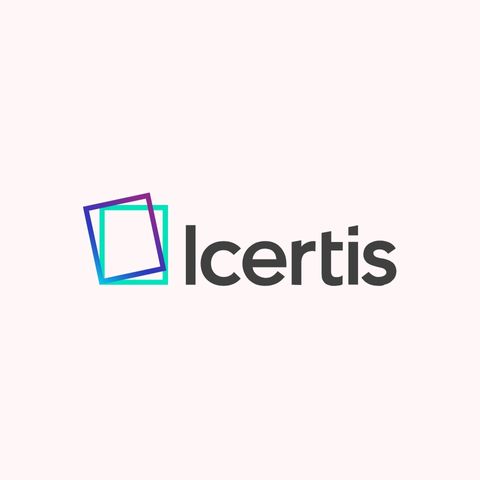
Icertis
Best for Enterprise
- USPAI-powered Contract Intelligence
- IntegrationsSalesforce, SAP, Microsoft, Workday
- Customer SupportHelpdesk Tickets
About Icertis
The Icertis Contract Intelligence platform offers powerful tools for contract drafting, negotiation, approvals, analytics, and compliance. AI-driven features help surface key insights and automate repetitive tasks to streamline the entire contracting lifecycle from negotiation to renewal. Founded in 2008, Icertis has global offices and supports multinational organizations.
Icertis leverages cutting-edge AI to enhance scaling, collaboration and efficiency for complex enterprise needs. Its robust security, flexible customization options and seamless integration capabilities make it ideally suited for large multinational companies with strict compliance requirements.
Icertis Features
AI-driven contract review: AI analyzes both agreements and language to extract critical metadata, identify terms of concern, improve negotiation effectiveness, and predict risks of non-compliance
Boost compliance: A clause library and obligation tracker help you maintain compliance across your agreements
Real-time collaboration: Embed comments and annotations directly in contracts for simultaneous review by internal/external stakeholders
Custom approval workflows: Automate routing of contracts through customizable approval stages based on conditional branching logic
Comprehensive search: Powerful search detects contracts based on attributes, full-text, and metadata for easy retrieval
Intelligent analytics: Centrally store and organize all contracts, documents, parties, and related objects in one place and get in-depth contract visibility that increases ROI
Icertis Pros/Cons
Unmatched scalability for complex needs of large enterprises
Industry-leading AI and automation capabilities
Highest security standards and compliance out of the box
Superior customization and flexibility
Premier integrations with major business systems
Expense of a top-tier solution not suitable all budgets
Significant implementation scope for large-scale deployments
Steep learning curve to leverage full platform potential

Conga Contracts
Best for End-to-End Contract Lifecycle Management
- USPRevenue Operations Automation
- IntegrationsSalesforce
- Customer SupportBased on Support Plan Chosen
About Conga Contracts
Conga Contracts is a comprehensive contract lifecycle management platform developed by Conga, a leader in Salesforce-centric automation solutions. Conga Contracts provides powerful features to automate repetitive contract tasks, enforce consistency and foster collaboration between internal teams and external parties. Template libraries, workflows, and real-time editing tools work together to boost efficiency. Insights from analytics and reporting features equip teams with data-backed decisions at each stage.
Conga Contracts excels at managing high-volume, complex contracts from end-to-end. Automated workflows handle routine approvals, negotiations, and routing while still allowing customization. Contract repository software gives legal, sales and other stakeholders consistent access to the most up-to-date contract versions. Risks are easier to mitigate with clause libraries and automated comparison checks.
Conga Contracts Features
Automated workflows: Set customizable approval steps, conditional logic and deadline-based notifications
Clause library: Store standard terms and pre-built sections for consistent, compliant contract generation
Redlining and negotiation tools: Facilitate real-time collaboration with external parties on contract review and edits
Template builder: Create templates enforcing brand standardization and compliance
E-signatures: Enable signing of fully executed contracts from any device
AI-powered search: Use AI to automatically extract data from any of the contracts stored in your central repository
Insights dashboard: Customizable reporting on workflows, obligations and more important metrics
Conga Contracts Pros/Cons
Comprehensive suite for complete contract lifecycle from request to renewal
Scalable to the needs of growing businesses and contract volumes
Robust security protocols and SOC2 compliance build trust
Steeper learning curve than basic CLM tools for new users
Complex subscription pricing makes costs less transparent

SAP Ariba
Best for Procurement and Supply Chain
- USPCentralized Contract Repository
- IntegrationERP Systems
- Customer SupportLive Chat
About SAP Ariba
SAP Ariba is a cloud-based procurement platform offering strategic sourcing, contract management, supplier enablement and spend analysis capabilities. Core functionality includes sourcing events, guided buying, catalog management and automated workflows spanning the entire source-to-pay process. Advanced analytics deliver strategic insights into spending patterns to maximize savings. Ariba’s vast supplier network fosters collaboration and lower costs through competition.
Few procurement solutions match Ariba’s breadth of features for managing the complete source-to-pay lifecycle. Its end-to-end platform streamlines procurement activities while leveraging data to continuously improve strategic sourcing decisions. Supplier information and performance ratings power collaborative negotiations that lower costs.
SAP Ariba Features
Strategic sourcing: Tools for optimum vendor qualification and negotiation, dynamic discounts
Contract management: Versioned agreements with alerts, electronic signatures, renewal notices
Supplier enablement: Onboard new partners and evaluate existing partners’ CSR standards
Procurement automation: Purchase ordering, invoice processing and approvals streamlined
Spend analysis: Actionable insights into expenses, savings opportunities and compliance
SAP Ariba Pros/Cons
Holistic procurement platform, lowering costs through strategic sourcing initiatives
Network effect of a millions-strong partner pool fosters competitive bidding environments
Automation from guided buying to invoicing frees up staff for higher-impact tasks
Implementation and adoption challenge for smaller companies with fewer resources
Extensive feature set has a steep learning curve for users accustomed to simpler tools
Customizations are difficult and require SAP professional services support
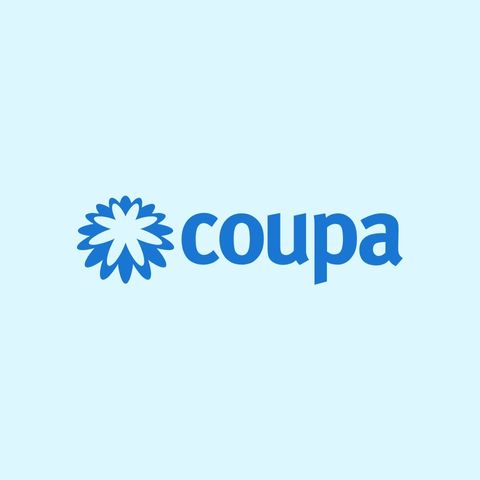
Coupa CLM
Best for Spend Management Integration
- USPComprehensive Spend Analytics
- IntegrationSAP, Sage, Netsuite, Workday
- Customer SupportVia Support Portal
About Coupa CLM
Coupa CLM streamlines contracting from request to renewal while leveraging Coupa’s spend management infrastructure. As part of a leading BSM platform, it offers robust functionality specifically designed to optimize purchasing processes and provide real-time spend transparency. Since the company’s founding in 2006, its integrated applications have enabled procurement best practices for companies worldwide.
Coupa CLM truly excels at unifying contract management with spend activities. By automatically syncing agreement terms and conditions into the spend workflow, it surfaces risks and ensures budget alignment. Users benefit from a single, accurate source of contractual obligations and costs.
Coupa CLM Features
Automated drafting: Streamlined prompt based contract drafting that saves time by pulling in results of risk assessments and sourcing events
Real-time collaboration: Powerful workflow and collaboration tools with audit trails ensure strict control while allowing for real-time contract editing and approval
Obligation tracking: Monitoring of contractual commitments like renewal dates, pricing, and deliverables across a centralized repository
Bulk contract updates: Amend, re-paper, or terminate thousands of contracts at once with minimal time and resources
Spend alignment: Automatic tracking of spend activity against contractual purchase commitments
Risk insights: Identification of potential risks through AI-powered analysis of contract language
Coupa CLM Pros/Cons
Effortless integration unlocks real-time spend visibility
Automated workflows improve efficiency for complex volumes
Centralized access enables company-wide oversight of contracts and business agreements
high configuration costs since it’s an enterprise solution
Vendor lock-in via proprietary APIs limits customization
Learning curve for leveraging Coupa BSM suite capabilities
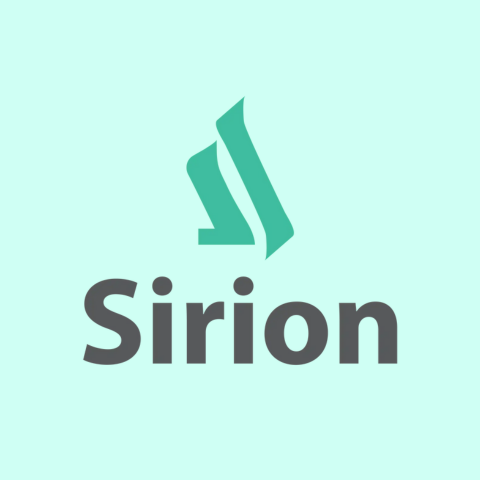
SirionLabs
Best for Large Business
- USPConversational Search in 100+ languages
- IntegrationSAP, Salesforce, DocuSign
- Customer Support24*7 Email Support
About SirionLabs
SirionLabs is a cloud-based CLM solution that streamlines contract management across the entire lifecycle. Founded in 2012, SirionLabs is headquartered in California and serves large enterprise customers globally. SirionLabs offers powerful AI-driven contract analytics along with collaboration tools, clause library, automated workflows and advanced reporting. Complex approvals, negotiations, and renewals can be managed seamlessly on the platform.
SirionLabs is highly scalable to support the largest contract volumes. The AI capabilities provide intelligent insights that save significant time and resources for large legal and procurement teams. Pre-built integrations with various ERPs and CRM solutions allow unified contract management across departments. Robust security and compliance features meet the stringent regulatory needs of multinational corporations.
SirionLabs Features
Contract request and creation: Streamlines contract creation and collaboration with a customizable playbook, template and clause library, and AI-powered insights to align with business goals
Centralized repository: Provides a secure, auditable repository with a conversational search interface to organize and quickly retrieve relevant contract data and insights across the organization
Live risk analysis: AI-powered contract review that identifies deviations from your playbook and provides prioritized risk analysis
Maintain compliance: Tracks and validates contractual obligations, SLAs, and invoices to ensure contract performance and compliance
Manage contractual relationships: Centralizes contract administration, issue management, and dispute resolution to maintain productive business relationships
AI-powered contract analysis: Extracts and structures contract data from across enterprise systems into a centralized intelligence asset
Customized reporting: Optimizes contract management processes by reconciling amendments, streamlining templates, and providing renewal insights
SirionLabs Pros/Cons
Scalability and enterprise grade features for high contract volumes
Pre-built third-party integrations
Advanced AI-capabilities for automating tasks
Global capabilities support multinational corporations with international contracts
Detailed analytics and reporting provide valuable insights for better decision-making
Steep learning curve for some complex features
Implementation requires significant time and resources
Pricing is higher compared to simpler solutions
Quick Comparison of the Best Contract Management Software
| Product | Workflow Automation | Security & Compliance | Pricing [Monthly] |
|---|---|---|---|
| PandaDoc | Streamlined workflows with drag-and-drop builder, conditional logic | SOC 2, HIPAA compliance options, GDPR adherence | $19 |
| Zoho Contracts | Approval workflows, auto-reminders, customizable templates | AES-256 encryption, SOC 2 certified, GDPR-compliant | $25 |
| Deel | Automated contract generation and sending, e-signatures | SOC 2 compliance, GDPR and CCPA readiness | $49 |
| ContractWorks | Customizable workflows with branching logic, approvals, reminders | SOC 2 certified, AES-256 encryption, HIPAA compliance options | $700 |
| Concord | Automated workflows with conditional routing, approvals, document assembly | SOC 2 certified, GDPR and CCPA compliance, industry-specific compliance options | $399 |
| Remote | Automate employee workflows through Zapier | SOC 2 compliance, GDPR compliance | $29 |
| DocuSign CLM | Pre-built workflows with e-signatures, routing, tracking | SOC 2 certified, HIPAA compliance options, GDPR adherence | On request |
| Evisort | AI-powered workflows for contract analysis, extraction, and insights | SOC 2 certified, GDPR compliance | On request |
| Ironclad | Playbook-driven workflows for complex agreements, AI-powered risk assessments | SOC 2 certified, HIPAA compliance options | On request |
| Icertis | Advanced workflow automation with approvals, contract lifecycle management | SOC 2 certified, GDPR compliance, industry-specific compliance options | On request |
| Conga Contracts | Configurable workflows with approvals, document automation | SOC 2 certified, GDPR compliance | On request |
| SAP Ariba | Integrated workflows with SAP ecosystem, procurement automation | SOC 2 compliance, GDPR compliance | On request |
| Coupa CLM | Contract lifecycle management with automated workflows, approvals | SOC 2 compliance, GDPR compliance | On request |
| SirionLabs | Configurable workflows with AI-powered insights, contract lifecycle management | SOC 2 compliance, GDPR compliance | On request |
What Is Contract Data Management?
Contract data management (CDM) is the process of systematically capturing, organizing, storing, and analyzing the rich information buried inside your contracts. It’s about creating a centralized hub where you can easily access, navigate, and leverage every nuanced term, condition, date and metric across your entire portfolio of agreements.
With the right contract data management strategy in place, you’ll finally be able to evolve past simply dealing with pieces of paper and start properly mining the treasure trove of opportunities and risks that your contracts contain.
Contract Data Management lays the groundwork for streamlining processes from creation and negotiation all the way through to performance monitoring and renewal. Analytics tools then take this centralized contract data repository one step further by flagging trends, variances, and outliers that traditional manual review would glaze over.
This level of insight enables proactive risk mitigation, smart compliance moves and proven negotiation tactics for future agreements. So whether you’re a lone lawyer wrangling with independent deals or the legal department at a Fortune 500 company, contract data should be at the forefront of your operations.
Types of Contract Management Software
Below are the 4 different types of contract management software designed to best serve the varied needs organizations face when managing their agreements and obligations.
1. Source-to-Contract (S2C) Suites streamline procurement from start to finish. By integrating contract features within their broader purview of spend management and vendor relationships, S2C suites offer unified visibility from need identification to finalizing supplier contracts.
2. Dedicated Contract Lifecycle Management (CLM) Systems take a comprehensive approach. Designed specifically for the contracting process, this contract administration software eases document management across the entire lifespan of an agreement. Automated workflows, robust reporting and analytics, and centralized access – all work in concert to provide control and oversight.
3. Basic eSignature and Document Management Systems offer simpler functionality centred around signing and storage. Though more limited in features compared to others, these entry level solutions still bring value to those with elementary needs.
4. Specialized Contract Management Software tailors its focus. By immersing solutions in industry nuances or particular agreement types like procurement, these niche products smooth workflows specific to real estate, government work or other domains.
So in choosing a partner, evaluating both your contracting complexities and overarching business objectives helps identify the right fit. Whether starting small or aiming for strategic advantage, options exist to streamline operations and apply control at each stage of the contract process.
Essential Features of a Contract Management Tool
Below are the features that your contract management tools need to have if you want to make sure that all your legal documentation stays compliant and secure, while also working more efficiently.
Contract templates: Pre-defined document frameworks save time by giving you a starting point for your most common types of agreements. With templates, you’re getting the benefit of boilerplate legal language that’s already been vetted. And your contracts all have consistent formatting and layouts.
Central repository of contract content: Keeping all your contracts and related files centralized makes them easy to find and access. It also lessens the risk of lost paperwork because all your critical info is neatly organized in one secure digital location.
Role-based access control: Controlling who can edit, share or even view your contracts and other important documents is crucial to maintaining their integrity and confidentiality. Only the legal team should be able to edit clauses, for example, while sales teams should only be able to view the contracts relevant to their clients. This also helps when it comes to enforcing approval processes.
OCR, AI, PDF, and printing: Functionality that supports multiple file formats streamlines your operations. Tools like Optical Character Recognition (OCR) make it easier to use or review scanned documents, while AI expedites tasks such as data extraction. Flexible output options add even more usability across the entire process.
Dashboard: An easy to understand visual representation of important metrics related to your contracts is important for real-time insight. For example, knowing that you have ten contracts nearing their expiry dates means you can decide whether they need to be renewed or are no longer relevant before they cause problems around compliance and the like.
Built-in eSignature: Digital signing eliminates the inefficiency of needing to get a paper document to all the right parties at the right moment and in the right order. With remote signing capabilities, your approval timelines go from days or weeks to minutes or hours.
Contract process pipeline: Being able to see the progression of each step in the contract lifecycle provides transparency that’s critical to efficient coordination. Not only can you identify common bottlenecks, you can also quickly resolve any delays that might crop up.
Admin monitoring: The confidentiality and integrity of your contracts and other legal documents depends on your digital security. Audit trails foster accountability, help prevent unauthorized access, and also make troubleshooting problems that much easier.
How to choose the best Contract management Software?
The points below will help you map your requirements so you can choose the best CLM for your business.
Document Storage and Organization
Choose a software that can streamline your document storage and organization, considering how your team currently manages contracts.
Version control helps you easily keep track of each iteration of a contract, and lets you roll back to a previous one when needed. Advanced OCR functionality lets you search the text of every contract in your repository, while tagging and metadata functionality makes it easy to add additional context to each file.
Automation and Workflow Management
Many organizations struggle with manual, paper-based processes, which often leads to bottlenecks and delays. This is aggravated by repetitive tasks are involved in the lifecycle of a contract. To properly assess your workflow, you’ll need to map out the key stakeholders, approval steps and major milestones involved in your contract processes.
Then establish what level of automation you need from your contract workflow software to get your agreements to the right person (or people) at the right moment. Systematic reminders are a standard requirement, as is some degree of automated routing. But you may also need conditional logic, branching rules, and detailed audit trails to reduce errors, expedite the contracting process, and free up your team’s valuable time.
Contract Creation and Editing
Drafting and revising contracts is often a time-consuming and repetitive process. Therefore, a template library is always good to have. If you’re drafting contracts from scratch each time, you may want a clause library instead. Having both would mean you’re able to accommodate both use cases with ease.
A built-in editor is ideal if there’s a lot of editing involved in getting your contracts ready to be signed. If there’s a lot of back and forth, or multiple parties involved in getting an agreement finalized, then you’ll look into how powerful the collaboration features of a CLM tool are.
Some will offer only simple customization and document sharing options, such as a small clause library and the ability to comment on an agreement. Then there are those where collaboration and advanced editing features are the main focus. The right CLM will reduce accidental errors, improve consistency and speed up the contract creation stage of your lifecycle.
Security and Compliance
Data breaches and regulatory fines can be crippling for any organization. Identify your data security needs by considering the type of information stored in your contracts. The specific types of sensitive data in your contracts, as well as the industry you’re in will determine what regulations you need to adhere to.
And you’ll need to make sure your CLM offers the features that support these needs. Any secure CLM has role-based access control and encryption to safeguard your data. But you might need or want more advanced encryption protocols, granular access and permission controls, more in-depth auditing, and options related to data residency
This not only improves your overall security posture, but also reduces the burden of managing your compliance requirements. Which protects your organization’s reputation and avoids the possibility of facing financial penalties.
Integration Capabilities
Siloed data is a challenge that many businesses face. Manually transferring data between your CRM, ERP, spend management or e-signature tools is often a recipe for errors and wasted time. So start by evaluating your current technology landscape.
Determine which systems and applications your contracts need to interact with, and look for a CLM that offers native integrations or pre-built connectors to these core business applications. An open API is also valuable, as it will allow you to integrate the CLM with any custom or less common tools in your tech stack.
With seamless, bidirectional integrations, you can create a single source of truth across the organization and improve data accuracy, which allows for more informed, data-driven decision-making.
Reporting and Analytics
In a digital world, data is king. Your contracts are a source of data, which means there are key metrics you can track to get useful insights from your past or current agreements. And dynamic reporting and analytics functionalities are key to decoding the valuable information they contain.
Most CLMs will have a dashboard that shows key performance indicators (KPIs) like contract value, negotiation timelines, or renewal dates. The best ones will take this a step further by allowing you to customize reports with the data points that are critical to you and your business.
Prioritizing effective reporting and analytics will optimize your contract management processes and help you achieve better business outcomes for the long term.
Scalability
The goal with any business is growth. And as your business grows, what you need from your contract management solution will change. So you need to understand your requirements now. But you also need to anticipate what you might need in the future. For example, you might be planning to enter new markets with different regulatory requirements.
Or you might be expecting your contract volume and complexity to increase. You want to avoid the nightmare of migrating data to a new system. So look into things like tiered storage options, accommodations for more users, flexible permissions, upgraded collaboration and editing features, and anything else you might need in the future.
Customization Options
A one-size-fits-all CLM can feel clunky and fall short when it comes to addressing your specific needs. To identify the types of customizations you need, analyze your current contract lifecycle. You might need specialized workflows for different types of contracts, or to set up unique approval processes for certain departments.
A highly customizable CLM will let you tailor workflows, configure data fields, and even build custom reports. With a customizable solution that adapts to your unique business practice, it’s a lot easier to streamline your contract management and improve efficiency.
Reputation and Reliability
You would rather not end up dealing with system outages, data loss, security concerns and disrupted contracts because you accidentally chose a CLM provider with a spotty track record. So research on the reputation and reliability of all the vendors you’re considering.
Look for strong industry recognition, a proven history of uptime and security, and responsive customer support, and positive reviews. Don’t be afraid to ask the vendor about their disaster recovery plan, or for references from users whose needs are similar to yours. A reliable CLM solution means your critical contracts are always accessible and secure.
Pricing Structure
Confusing pricing structures can lead to unexpected costs and limit your ability to manage software expenses. Before diving into CLM options, consider your budget and how you plan to use the software.
- Per-user pricing: This common structure charges a fixed fee per user that accesses the software. It’s ideal for users with predictable contract flows and users, but costs can get out of hand as your team grows.
- Fixed tier plans: With this model, vendors offer pre-defined packages with specific features and user limits. This gives you clear options and makes it easy to select a tier that aligns with your core needs. But it can impact scalability or lead to additional charges if you exceed a plan’s limits.
- Pay-as-you-go: This model is based on your actual usage, though it may also involve a minimum monthly fee. Its scale is often determined by the number of contracts or users per month, but might also be connected to other features such as e-signatures or collaborations. Its flexibility is perfect for fluctuating monthly needs, but may not be cost-effective for high volume needs.
- Enterprise plans: These are typically customized for large organizations with complex needs. They can give you access to the most features and scalability, but typically come with the highest up-front cost. There’s also the risk of cost/feature-creep.
Request Demos and Trials
Choosing a CLM based only on what you’ve read about it can lead to a system not fitting with your team’s actual needs. Taking advantage of demos and trials lets you evaluate both the functionality and usability of the CLMs you’re considering. Remember the key pain points you want the CLM to address, and test the features that address them extensively.
Your trial period lets you test-drive the software with real-life scenarios and real-world data. The hands-on experience will help you identify any road-blocks with usability, and determine whether the solution will solve your unique contract management challenges for the long term.
Potential Issues with Contract Management Software
Just like with any other business software, implementing a contract management system does carry some potential risks that companies should be aware of. Taking steps upfront to avoid common pitfalls can help ensure a smoother implementation process.
Integration Challenges
Connecting your CLM to existing systems like your CRM, project management software or ERP may hit roadblocks if the integrations aren’t thoroughly planned. This could disrupt your workflow. To avoid this, follow the below guidelines.
- Research the software’s integration capabilities during selection
- Look for pre-built connectors to your key systems
- Discuss custom integration needs with the vendor
If issues do come up, work with support teams to configure custom solutions.
Data Migration Complications
Moving existing contracts and records to a new CLM is not as simple as copy-paste. Inaccurate legacy data or complex conversions could slow the process. To avoid potential migration headaches follow the below steps.
- Organize and clean old contract data beforehand
- Partner with the vendor’s data experts
- Map out the migration process in advance
With proper planning and vendor assistance, the transition should go smoothly.
User Adoption and Training
Help users embrace change by focusing on ease of use and support. To ensure full adoption, take the following steps.
- Involve your team in selection to choose an intuitive product
- Provide comprehensive training
- Address any usability feedback right away
Offer ongoing guidance, so stakeholders are leveraging everything the new system has to offer.
Scalability Limitations
As your business grows, can the software scale in stride? Limitations could cause performance issues down the line. To avoid being constrained,
- Select a system designed for flexible growth
- Consider cloud-based contract management software with inherent scalability
Should limitations emerge later, explore upgrade paths or alternative vendors.
Cost Concerns
Hidden fees or underestimated implementation investments can strain budgets. To keep costs transparent:
- Request detailed quotes upfront
- Factor in all potential expenses during selection
- Negotiate favorable contract terms
Work with the vendor to find cost-effective solutions if price becomes an issue.
Compliance and Security Risks
Selection requires prioritizing protection. To safeguard sensitive data:
- Choose a vendor known for robust security
- Ensure the software meets your industry regulations
- Conduct routine independent security audits
If any gaps surface, involve the provider to implement fixes or consider stronger alternatives.
Customization and Flexibility Issues
One-size-fits-all systems may not support unique workflows. Limited customization could disrupt processes. To avoid such constraints:
- Evaluate customization capabilities beforehand
- Confirm ability to configure fields, reports as needed
Should limitations emerge, explore creative workarounds or whether you can integrate third-party process management software to provide the workflow functionality you need.
Over-reliance on Automation
While contract automation tools streamline work, too much could overlook important exceptions. To gain benefits without pitfalls:
- Apply automation judiciously for routine tasks
- Maintain human review of important decisions
Audit rules regularly and solicit stakeholder feedback to refine processes over time.
Performance and Downtime
Slow responses or outages negatively impact users. To avoid disruptions:
- Choose a provider with a reliable track record
- Validate the software is scalable for growth
Should issues arise, work swiftly with support to find remedies or consider a vendor change if needed.
Benefits Of Contract Management Software
There are many advantages for organizations that implement contract tracking software. Here are just a few of the top benefits and why they matter:
- Increased Efficiency: By automating routine tasks like routing, reminders, and deadline tracking, as well as centralizing all contract information in one secure place, legal contract management software streamlines the entire contract management process. This frees up your team’s time and focus to instead work on more strategic initiatives that further your business goals.
- Improved Compliance: Features such as automated alerts, detailed audit trails, and compliance-driven smart contracts help ensure adherence to regulations. Non-compliance can result in hefty penalties, so proper compliance safeguards are important to implement.
- Enhanced Visibility: Dashboards, advanced search functions, and customizable reports provide clear visibility into your entire contract portfolio. This insight enables proactive risk management and strategic decision-making across your contracting processes.
- Risk Reduction: Automated risk identification, version control, and strict permission settings aid in mitigating risks. Identifying and dealing with risks now can help avoid potentially costly financial losses or legal issues down the line.
- Better Decision-Making: Centralized data storage, built-in collaboration tools, and robust analytics empower informed choices. Strategic decisions guided by performance insights and trends identified by your contract storage software can benefit your contractual relationships and business outcomes long term.
What is the Standard Contract Management Process?
While every organization approaches contract management in a way that makes the most sense for their unique needs and industry, there typically is a consistent lifecycle that all agreements go through. The contract management process oversees the entire relationship between signing and closing, ensuring both parties meet their obligations.
- Initiation and Request — This begins with identifying a need for a new contract. A standardized request should capture essential details like purpose, counterparties and desired terms. Review requests thoroughly to align with your strategic goals.
- Negotiation and Drafting — Once approved, a team member drafts the initial contract, leveraging existing templates or contract writing software when possible. Thorough negotiations finalize specifics.
- Approval Workflow — The drafted contract undergoes reviews by designated teams based on pre-defined criteria like value or terms. Electronic signatures and reminders streamline this process.
- Execution — With all parties satisfied, it’s time for formal signing by authorized representatives, whether physically or electronically.
- Contract Administration — Ongoing management ensures fulfillment of terms through performance monitoring, deadline tracking and issue resolution.
- Renewal or Closure — As expiration nears, renegotiate or terminate with sufficient notice and a formal process.
Popular Books to Learn Contract Management
Whether you’re just starting out in contract management or looking to refine your existing skills, popular books are a great resource for building your knowledge base. A few key titles stand out as particularly helpful for learning the nuances of crafting, negotiating and overseeing contracts effectively.
1. Contract Strategies for Major Projects by Edward W. Merrow offers invaluable insights for those dealing with major projects that involve extensive contracting. Drawing on a large database of real-world examples, the book demonstrates common pitfalls to avoid at the negotiation stage through discussions of strategic principles and owner-contractor relationships.
| Preview | Product | Rating | |
|---|---|---|---|

|
Contract Strategies for Major Projects: Mastering the Most Difficult Element of Project Management | Buy on Amazon |
2. Public Procurement and Contract Administration by Jorge A. Lynch provides an overview of public procurement processes and administering contracts comprehensively over their lifecycle. It walks through the procurement cycle, from initial planning and bidding through negotiations, awarding, and closeout.
| Preview | Product | Rating | |
|---|---|---|---|

|
Public Procurement and Contract Administration: A Brief Introduction (Procurement ClassRoom Series) | Buy on Amazon |
3. The Contract Management Body of Knowledge® (CMBOK®) lays out a framework for defining essential contract management practices. Developed through expert consensus, it presents guidance on what professionals in the field need to learn and outlines standardized processes.
| Preview | Product | Rating | |
|---|---|---|---|

|
Contract Management Body of Knowledge®: CMBOK® Seventh Edition | Buy on Amazon |
4. The Practical Guide to Contracts and Other Essential Knowledge by Dondi M Day follows a seasoned project manager navigating realistic scenarios to convey helpful lessons. Its case study format immerses you in decision-making considerations around drafting scopes of work, addressing claims, interpreting contract terms and other recurring challenges.
| Preview | Product | Rating | |
|---|---|---|---|

|
The Practical Guide to Contracts and Other Essential Knowledge: What They Are Not Teaching… | Buy on Amazon |
In summary, incorporating guidance from vetted books is a smart way to advance your contract management abilities. The above highlights several options worth exploring to enrich your understanding.
Frequently Asked Questions (FAQs)
A CRM (Customer Relationship Management) system focuses on managing customer interactions, sales pipelines, and marketing efforts. It helps you build relationships and generate leads. Contract management software, on the other hand, specializes in creating, storing, and tracking legal contracts throughout their lifecycle. It ensures you meet deadlines, comply with regulations, and manage risk effectively.
Contract management software pricing can vary depending on features, storage capacity, and the number of users. It can range from freemium options with limited features to enterprise-level solutions costing tens of thousands of dollars per year. It’s important to consider your specific needs and budget when selecting a CLM system.

